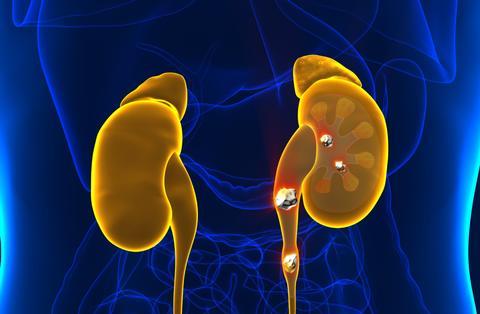Source: China Daily
A U.S. study showed that rising global temperatures could lead to an increase in kidney stone cases, which would increase by 2.2 to 3.9 percent if greenhouse gas emissions continued at their current rate.

[Photo/IC]
Climate change in the coming decades could lead to an increase in cases of kidney stones that would bring huge costs to healthcare systems, according to research by scientists in the United States.
Research by U.S. scientists shows that climate change in the coming decades could lead to an increase in kidney stone cases, which will greatly burden the healthcare system.
A study, published this week in Scientific Reports, found that even if measures are put in place to reduce greenhouse gas emissions, there would still be a rise in cases of the painful condition.
A study published this week in Scientific Reports found that even if steps are taken to reduce greenhouse gas emissions, kidney stone cases will increase.
A research team from the Children's Hospital of Philadelphia knew from previous studies that high temperatures and dehydration increase the risk of developing kidney stones.
A previous study by a team of researchers at Children's Hospital of Philadelphia showed that heat and dehydration increase the risk of kidney stones.
With this latest study, the scientists sought to project how climate change will impact the burden of kidney stone disease on healthcare systems in the future, reported The Independent newspaper.
According to the British "Independent", through this latest study, scientists are trying to predict how future climate change will affect the burden of kidney stone disease on the health care system.
Kidney stone disease is caused by hard deposits of minerals that develop in concentrated urine and cause pain when passing through the urinary tract. The researchers said incidence of the condition has increased in the last 20 years.
Kidney stones are caused by deposits of hard minerals formed in the urine and cause pain when passing through the urinary tract. The researchers say the incidence of the disease has risen over the past 20 years.
The scientists created a model to estimate the impact of heat on future kidney stone presentations in the southeastern US state of South Carolina, which has a higher incidence of kidney stone disease.
Scientists have built models to estimate the impact of high temperatures on the future state of kidney stone disease in South Carolina, southeastern United States. The incidence of kidney stones is higher in this state.
The model predicted that the number of cases will increase between 2.2 percent and 3.9 percent by the year 2089, depending on projected daily temperatures under two climate change scenarios.
The model predicts that the number of kidney stone cases will increase by 2.2 to 3.9 percent by 2089, depending on the daily temperature projected under both climate change scenarios.
In the first scenario, greenhouse gas emissions are cut to an intermediate level as humans shift to using lower-emissions sources of energy, while in the second, emissions continue at the current rate.
In the first case, as humans switch to lower-emitting energy sources, greenhouse gas emissions are cut to moderate levels, while in the second case, emissions continue to grow at the current rate.
In the first scenario, average temperatures increase by 2.3 C by 2100, compared with 3.6 C in the second. These projections were taken from studies made by the United Nations Intergovernmental Panel on Climate Change.
In the first case, the average temperature rises by 2.3 degrees Celsius by 2100, while in the second case the average temperature rises by 3.6 degrees Celsius. These data projections come from studies by the United Nations Intergovernmental Panel on Climate Change.
In comments with a news release, Gregory E Tasian, a urologist at the Children's Hospital of Philadelphia and senior author of the study, said: 'While it is impossible to predict with certainty how future policies will slow or hasten greenhouse gas emission and anthropogenic climate change, and to know exactly what future daily temperatures will be, our analysis suggests that a warming planet will likely cause an increased burden of kidney stone disease on healthcare systems.
Gregory Tassian, a urologist at Children's Hospital of Philadelphia and lead author of the study paper, said in a press release: "While it is impossible to predict exactly how future policies will slow or accelerate greenhouse gas emissions and anthropogenic climate change, nor can we know exactly what will happen to future daily temperatures, our analysis suggests that global warming may increase the burden that kidney stone disease places on health systems." ”
'With climate change, we don't often talk about the impact on human health, particularly when it comes to children, but a warming planet will have significant effects on human health.
"We don't often talk about the impact of climate change on human health, especially on children, but global warming will have a significant impact on human health."
'As paediatric researchers, we have a duty to explore the burden of climate change on human health, as the children of today will be living this reality in the future.'
"As pediatric researchers, we have a responsibility to explore the impact of climate change on human health, because today's children will live in this reality in the future."
Reporter: Brian Chang
Editor: Dong Jing
Source: China Daily